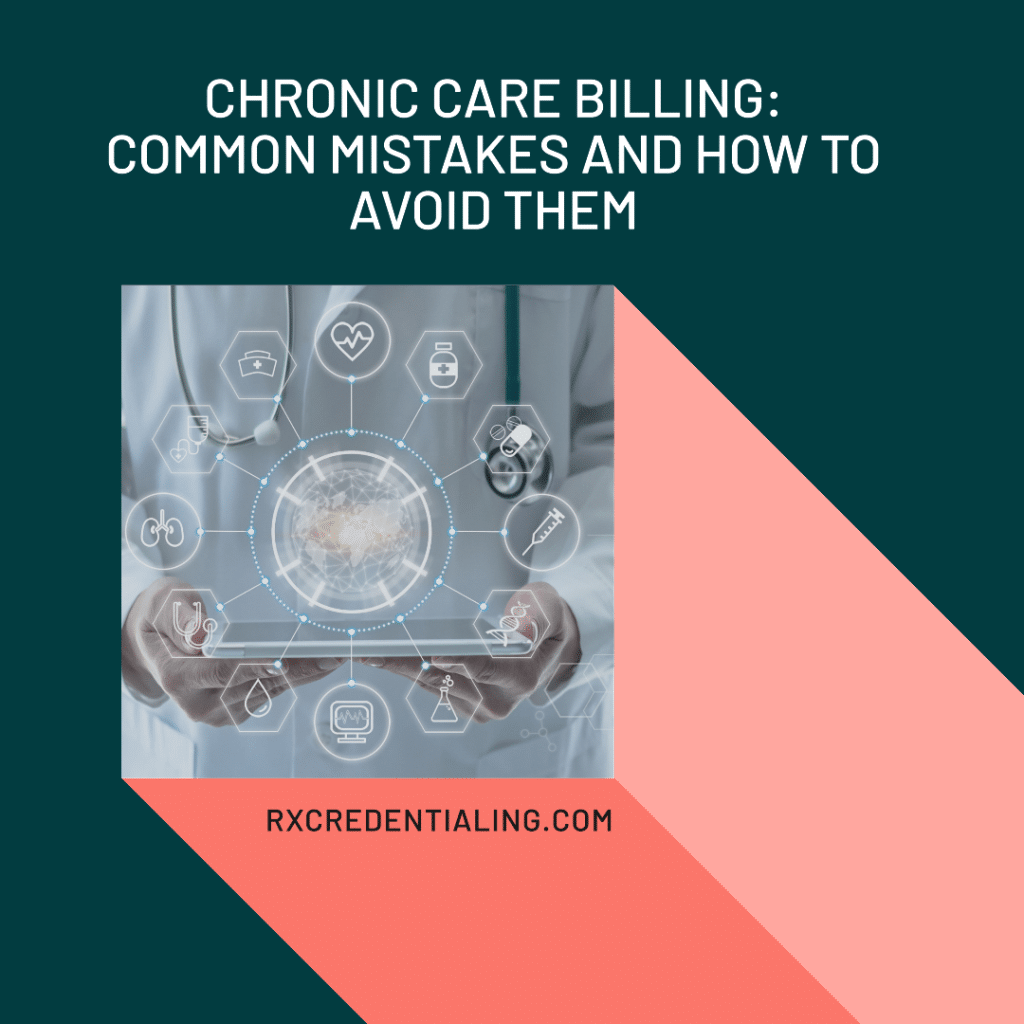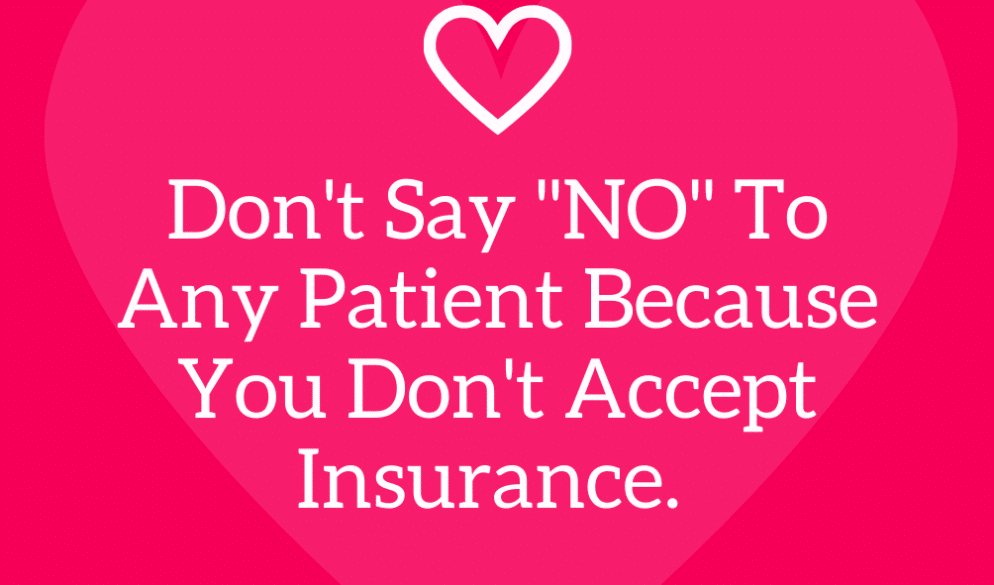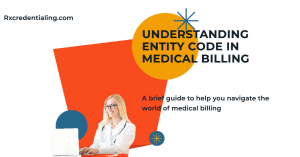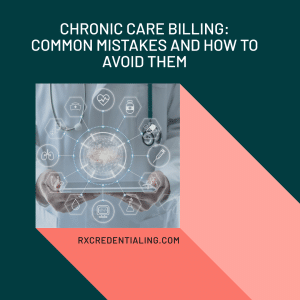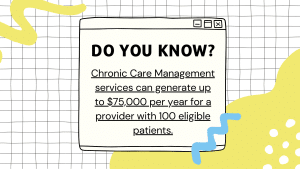Understanding the Complexities of Chronic Care Billing
Let’s delve further into the intricate world of chronic care billing. Navigating through it can often feel like finding your way through a labyrinth.
Bills are elaborate documents filled with codes, each representing a different aspect of treatment, like procedures, diagnoses or medical equipment.
The first obstacle to overcome is understanding these complex codes. Predominantly, you will come across ICD-10 (International Classification of Diseases, Tenth Revision) codes for diagnoses.
Alongside them, there are also CPT (Current Procedural Terminology) codes for procedures and HCPCS (Healthcare Common Procedure Coding System) codes for medical equipment.
Not to mention the constantly updating regulations and standards that healthcare professionals have to keep up with.
In the chronic care practice realm, multiple visits, telemedicine, different treatment plans, and changing patient health conditions all add another layer of complexity to billing.
This leads to frequent errors, which can delay reimbursements, result in denied claims, and have serious legal implications.
Understanding how to navigate these complexities is your key to unlocking accurate and efficient chronic care billing.
By familiarizing yourself with common codes, billing standards, and potential errors, you’ll be better equipped to establish seamless billing processes within your practice.
Top Billing Mistakes in Chronic Care: A Deep Dive
Imagine this – you’ve just wrapped up a successful week, providing essential care to patients with chronic conditions. You take pride in offering them the attention they deserve.
Nevertheless, there’s another stringent task: billing. Statistics suggest that billing mistakes account for an alarming amount of lost healthcare revenues.
The first common blunder lays in upcoding or overcharging. When services that weren’t rendered or are more expensive than those actually delivered are billed, we hit a bump named ‘upcoding’.
This error often occurs due to lack of familiarity with coding nuances or miscommunication between care providers and billing personnel.
Another recurring slip-up is unbundling. In medical billing, some procedures are clustered and coded as a single service for billing purposes.
Each performed service’s individual billing, while they should have been billed collectively, termed ‘unbundling’, leads to inflated invoices.
Duplicate billing, just as its name suggests, involves charging twice for the same service or procedure due to clerical errors or submission of multiple claims.
| Common Billing Errors | Description |
|---|---|
| Upcoding | Billing for services more expensive than those delivered. |
| Unbundling | Separate billing for services meant to be billed collectively. |
| Duplicate Billing | Charging twice for the same service. |
Identifying these mistakes and understanding their origins paves the way to rectification.
By integrating knowledge into your daily routine, you stand to diminish these errors and usher in a more efficient, profitable practice.
Consequences of Billing Errors in Chronic Care Practice
Mistakes, as they say, can be costly. That’s true in so many ways when it comes to billing errors in chronic care practices.
But what does it really mean to make an error in this line of work? Let’s delve into some of the potential consequences that can unfold.
Financial Implications:
The most immediate and striking impact of billing errors is a financial loss. Incorrect billing could result in denied claims, which means lost revenue.
Let’s not forget about the costs that come with rectifying the errors, such as time, resources, and any additional administrative costs.
In worst-case scenarios, practices might face penalties or fines for regular or large-scale inaccuracies.
Damage to Reputation:
Let’s pick into another potential pitfall.
You’ve worked hard to establish trust with your patients, and part of that trust revolves around your practice’s professionalism and accuracy – including in billing.
Persistent errors can create frustration for patients, potentially impacting patient satisfaction and loyalty. Word-of-mouth carries a lot of weight; negative experiences shared can harm your reputation.
Legal Consequences:
In the world of medical billing, any form of misconduct, even when unintentional, can lead to legal troubles.
Violations of regulations such as the False Claims Act can result in litigation.
Furthermore, there can be situations where practices might be forced to refund the inappropriately billed amounts to insurance companies or patients.
Operational Efficiency:
And though it may seem less dramatic, also consider the strain that billing errors can place on operational efficiency.
The time and effort spent rectifying these mistakes distract from patient care.
Add to that, the morale of your staff could potentially decrease when they are constantly tasked with correcting errors and dealing with dissatisfied patients.
Practical Tips to Avoid Billing Blunders in Chronic Care
Without a doubt, you want to provide the best possible care for your patients, but simultaneously, error-free billing is of paramount importance for the smooth operation of a chronic care practice.
Good news, though! Implementing a small number of smart strategies can significantly decrease the probability of billing mistakes
Firstly, the focal point should be on accurate patient data. It’s a key player in billing effrontery.
A slip-up as minor as an incorrect name spelling, wrong identification number, or incorrect date of birth coupled with misinformation about insurance can lead to claim denials.
Research has shown that these seemingly minor errors constitute a major portion of the billing inaccuracies.
Therefore, exercising diligence while entering patient information can help mitigate errors right from the inception.
Another crucial step is understanding and keeping up-to-date with the ever-changing insurance policies, coverage rules, and coding regulations. The Centers for Medicare & Medicaid Services (CMS), frequently amend their guidelines.
Developing a system to keep track of these changes can prevent coding errors, one of the most common chronic care billing mistakes.
| Common Chronic Care Billing Errors | Practical Strategies to Avoid Errors |
|---|---|
| Inaccurate Patient Information | Exercise diligence while entering patient information, double-check data. |
| Out-of-date Coding Regulations | Stay updated with the latest coding guidelines; attend educational seminars or webinars. |
Finally, creating an environment that supports ongoing training and education is vital. Regular training sessions relating to chronic care billing, either in the form of workshops or webinars, empower employees with the correct knowledge.
Upgraded knowledge enables them to confidently navigate the labyrinth of chronic care billing, while simultaneously reducing the chances of errors.
A perfect illustration of this would be a study which found that continuous employee training significantly reduced billing errors.
Ultimately, accuracy in billing is achievable. By taking a proactive approach to the management of patient data, staying updated with coding regulations, and fostering an environment of continuous training and education, you can greatly reduce chronic care billing mistakes in your practice.
Training and Education: Cornerstones of Accurate Chronic Care Billing
You probably understand the vital role that training and education play in accurate chronic care billing. But have you considered integrating continuous learning strategies to your practice? Let’s explore this together.
The medical billing landscape is dynamic, with codes, regulations, and insurance company policies frequently changing.
As a chronic care specialist, keeping up-to-date with these changes can be challenging, but it’s essential. Committing to a persistent education plan ensures that you’re always on top of the latest billing information.
By investing in regular training sessions, you empower your staff with the tools they need to prevent costly billing errors. These training regimes could focus on specific areas such as:
- Correct usage of billing codes
- Understanding changes in insurance policies
- Keeping up with policy changes and updates to regulations
- Properly documenting patient encounters
- Navigating billing software and electronic health records (EHRs)
Another method of continuous learning—joining professional organizations and online forums—provides an avenue for networking and learning from the experiences of others.
These communities are often the first places where changes or updates are discussed, giving you an edge.
Remember, the goal of training and education in chronic care billing is to foster accuracy, effectiveness, and efficiency.
When you equip your team with the knowledge they need to succeed, the result is fewer billing errors and increased revenue for your practice.
The Power of Audits in Uncovering Chronic Care Billing Mistakes
Stepping into the light of audits may seem intimidating, but we assure you, it’s a powerful tool that can help you eliminate chronic care billing mistakes. Developing an effective auditing system for your practice can be a game-changer.
Auditing, in essence, is a systematic process of analyzing and reviewing patient records, billing information, and the overall coding adherence in your practice.
By conducting audits regularly, you gain insight into the inner workings of your practice, and deduce where errors might occur.
How does it uncover chronic care billing mistakes?
During an audit, you scrutinize the accuracy of your billing claims. You would go through a detailed examination of the services billed versus the services documented in the health records.
This intense evaluation brings to light any discrepancies, potential coding mistakes, and improper charges.
Consider using a mix of both internal and external audits for the thorough assessment. Internal audits, conducted by your staff, can regularly keep an eye out for inaccuracies.
External audits, on the other hand, can provide a fresh perspective and uncover deeper root-cause issues that may be missed during internal audits.
The findings from these audits can offer actionable insights to improve your chronic care billing.
This is more than an exercise in compliance—it’s a proactive measure to ensure accuracy and efficiency in your billing.
After all, correct billing leads to proper revenue flow and improved patient satisfaction.
Remember, knowledge is power when it comes to chronic care billing and audits offer you just that.
Arm yourself with knowledge, sweep away billing errors, and enjoy the benefits of accurate chronic care billing.


